Never mind going electric, where will we park?
- Published
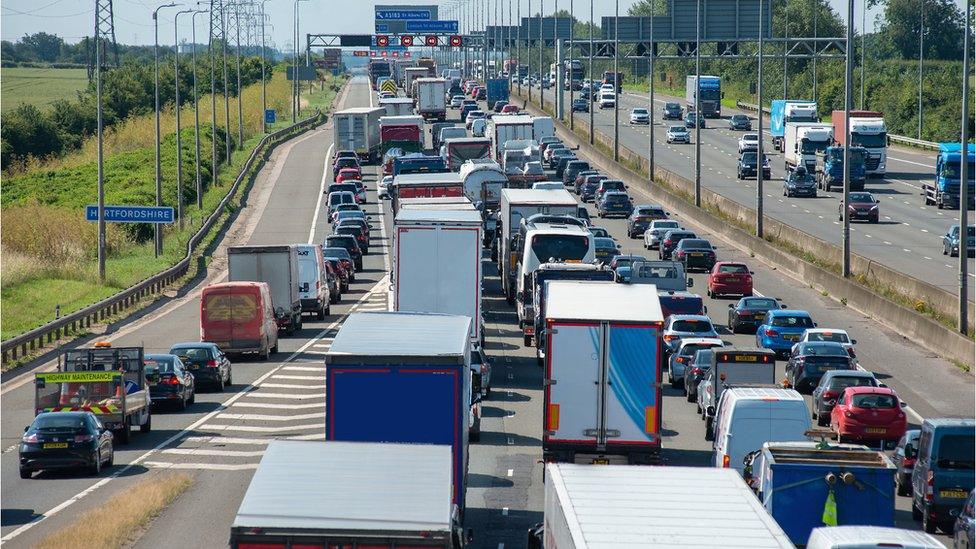
No effortless driving on the open road for these motorists
A sleek, shiny car breezes along an open road, zipping easily through narrow city streets. Its paintwork is pristine, its electric engine is clean and silent. When it arrives there is parking right outside the front door.
So much for the advert. In reality, traffic in the UK is often slow and the roads can be clogged. A 60-mile (96km) journey on 60mph roads is reckoned to take 85 minutes - an average speed of 42mph (67km/h).
Drivers already own 32 million cars - that's up 28% since 2001, during which time the population has only risen by 13%. And by 2050 there will be 44 million cars in the UK - so start looking for that parking space now.
Last year, the government announced a £2.8bn package to encourage drivers to switch to greener vehicles. This included a £1.3bn investment in charging infrastructure as well as discounts of up to £2,500 on low emission vehicles costing under £30,000.
Yet the Institute for Public Policy Research (IPPR) warns that, rather than improving air quality by lowering exhaust emissions, these incentives risk making highways far busier and even slower, external - as people buy so-called "zero-emission, guilt-free" vehicles.
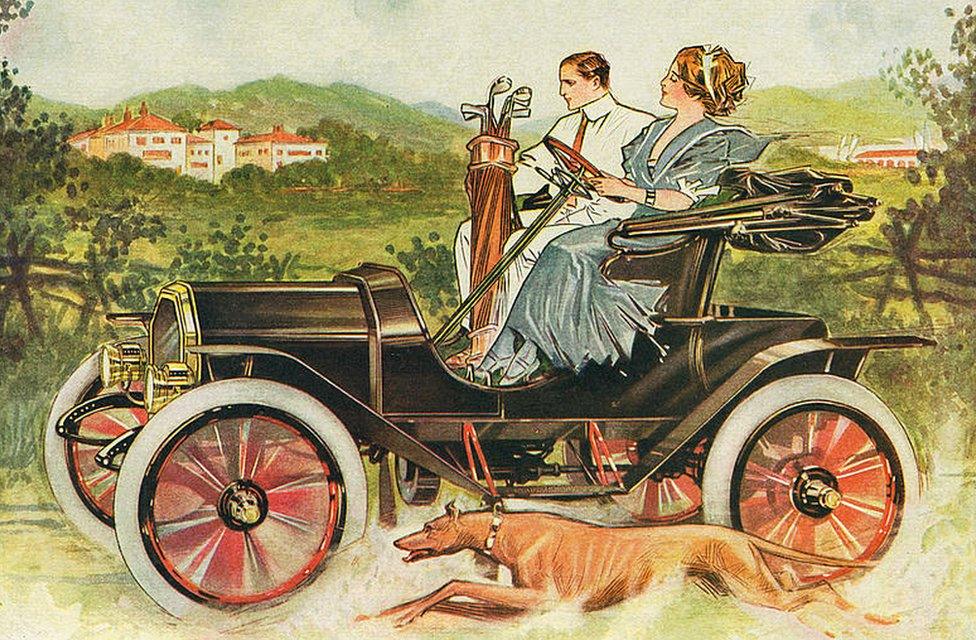
An electric car advert from 1910: Advertisers have been selling the allure of all-electric cars for over a century

Indeed, sales of Battery Electric Vehicles or BEVs, described by the government as zero emission vehicles, were up 73% compared to last year.
But while exhaust emissions might fall, the so-called "embedded emissions" needed to build, charge and maintain this army of cars - will increase with growing car ownership.
Congestion and traffic jams come down to one simple fact - cars are space-inefficient. They take up seven times the space of a bike but usually carry only up to five people. Often this number is much lower - and that's only when they're moving.
In June, the RAC Foundation published a report that revealed cars are empty and parked 23 hours out of every 24, external. They're only used for an hour a day. And there aren't enough car parking spaces to go round.
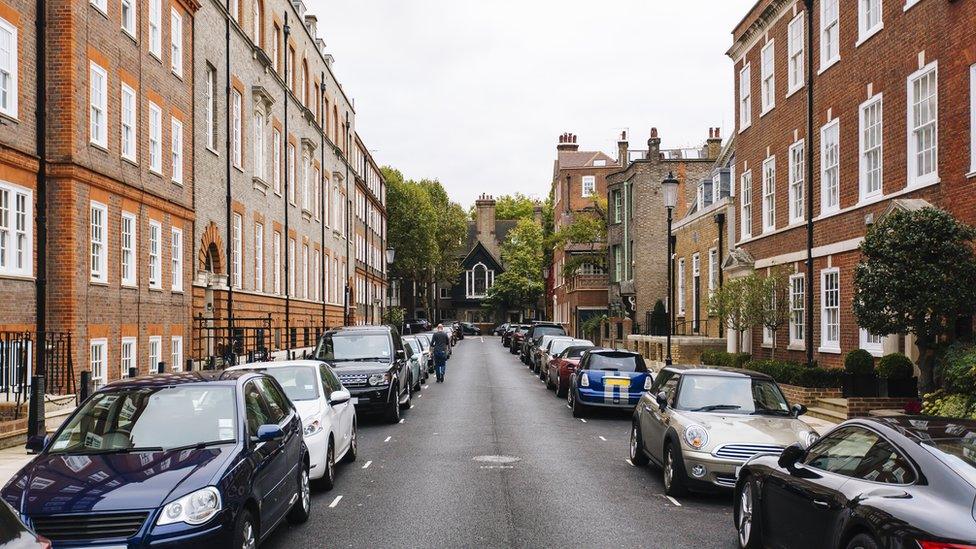
Eight million cars are parked on UK streets
"Everybody knows of places where the parking pressure is enormous," says Leeds University's Prof Jillian Anable.
"Not only do people not have off-street parking, on-street parking can be really chaotic [and] not guaranteed."
Unless all 18 million car-owning household has access to charging there is likely to be a rise in what she calls "parking politics".
"People who have electric vehicles (EVs) are going to feel entitled to certain car-parking spaces, and those without EVs are going to get further squeezed in terms of space," she says.
At the current rate, managing these neighbourhood battles over territory will require more space to be surrendered from either the road or the pavement.
Someone will have to give way.
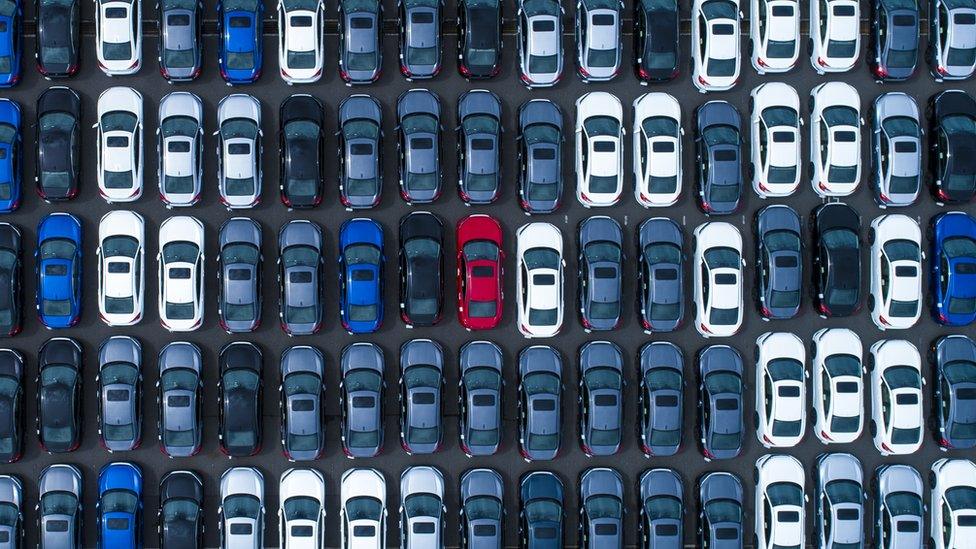
Cars are unused and parked 23 hours out of every 24, says the RAC
For the last 20 years the proportion of owners parking cars in the street has remained at around 25% - that's some eight million cars.
Often, they can be found straddling the pavement so as not to take up an entire lane. But even this is becoming more difficult, as the average car is 28% bigger than it was in 1965.
And the three best-selling battery electric vehicles in 2020 - the Tesla Model 3, Kia Niro and Jaguar I-Pace , external- are all wider and longer than the three best-selling petrol or diesel cars - the Ford Fiesta, Vauxhall Corsa and VW Golf.
The problem is that building more roads won't help, says Mark Frost, chair of The Transport Planning Society (TPS), which is calling for a halt to any new major road-building projects.
"If you build more roads you get more traffic. When we build a new road, journeys get a bit faster because there's a little bit more capacity." But drivers then realise this road is faster and it fills up with more traffic - undermining any benefits of the original intervention, he adds.
In June, the Welsh government suspended future road-building, saying it was essential to "shift away from spending money on projects that encourage more people to drive".
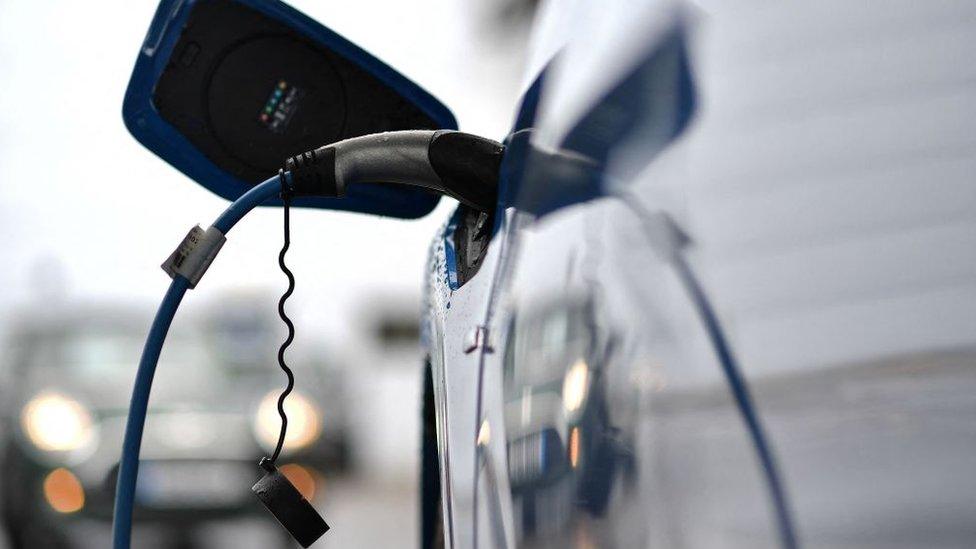
Mark Frost says simply encouraging EV ownership electric vehicles risks worsening road congestion
Encouraging ownership of electric vehicles risks only make things worse, says Mr Frost. "The way we use our network is pretty bonkers at the moment and electric mobility is going to supercharge that bonkers-ness."
His argument is that running electric cars will be cheap. The costs of charging them at home will be a fraction of the price of a full tank of petrol. And, after spending thousands on a vehicle marketed as ethical and clean, drivers will understandably want to actually drive them.
"That could potentially drive a real avalanche of e-congestion and e-traffic onto the network."
Car clubs, where members hire and share locally-parked cars by the hour, are one solution to curbing private car ownership while still allowing access if a car is the only option.
More ambitiously, fleets of self-driving vehicles that could shift to an out-of-town car park when demand is low is another option. But these could be decades away.
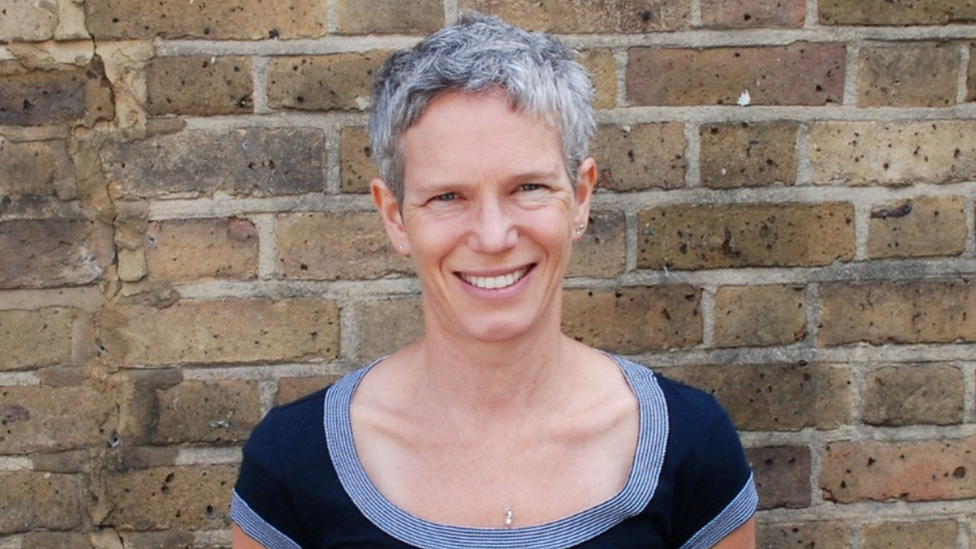
Almost 60% of UK car trips are less than five miles, says transport planner Lucy Marstrand-Taussig
Lucy Marstrand-Taussig is a transport planner who has advised the government on walking and cycling. She argues that the scale of spending on roads does not make sense: "We know new roads induce congestion and warm the planet, creating more problems."
Electric vehicles should be secondary, she says, and the government should be investing far more in space-efficient transport modes - public transport, walking and cycling.
She points out that 58% of UK car trips are less than five miles so there is huge potential for reducing motor traffic.
In July, the Department for Transport reiterated the UK's £2bn commitment to active travel over five years, but Ms Marstrand-Taussig says this is not enough.
"It does seem a bit bonkers that we're looking at £27bn for new roads, when we need £6bn for walking and cycling over the term of this parliament.
"Most of our shorter trips take place in urban areas, so it's really in cities and towns we need to see significantly more spending on walking and cycling."
But that needn't exclude rural areas, where UK public transport cuts often mean driving is the only option, she adds.
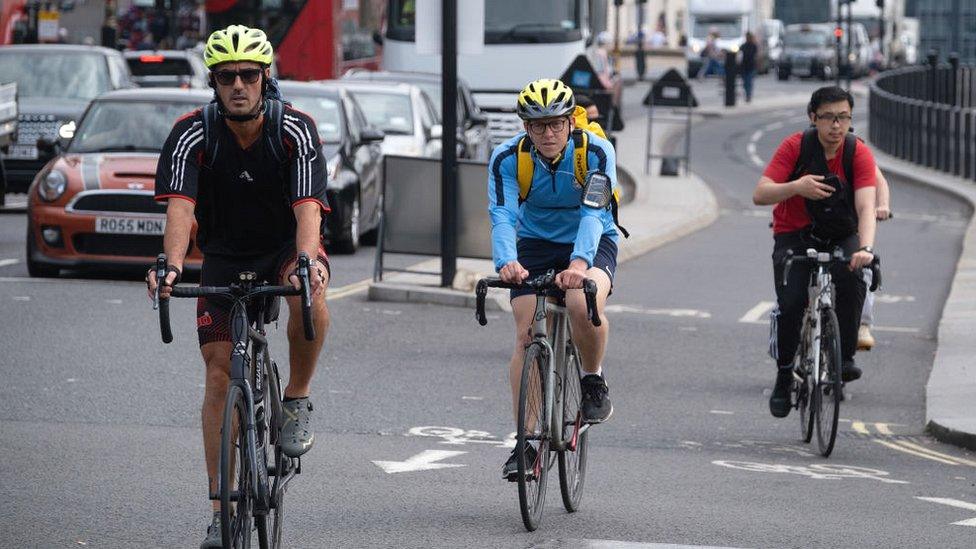
The Department for Transport says it wants public transport, cycling and walking to be "the natural first choice" for all those who can use these options
The Department for Transport says it is not a case of either improving roads or the cycling and walking infrastructure. It points out that "in any scenario" the majority of longer passenger and freight journeys will be made by road, and so upgrading the UK's road network "remains of vital importance".
"At the same time, we're investing unprecedented funding to make public transport, cycling and walking the natural first choice for all those who can use these options - especially for shorter journeys," says the department.
Ms Marstrand-Taussig, and others like her, say roads need to be made available for non-car users, too.
"Roads make up about three quarters of public space. There's an equity argument. Everybody needs to be able to use them, not just car drivers."